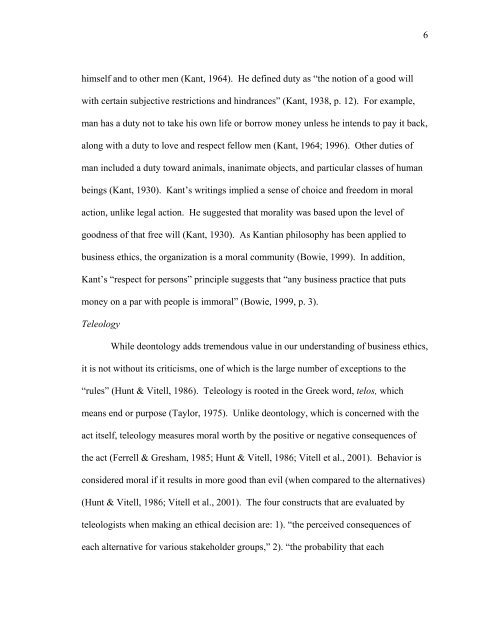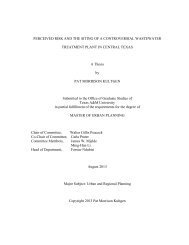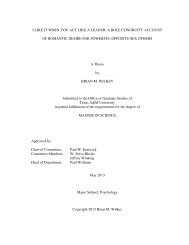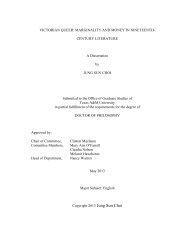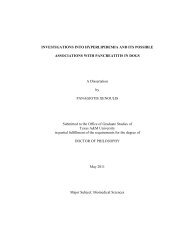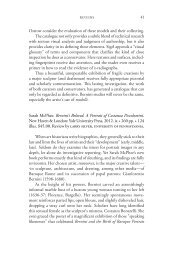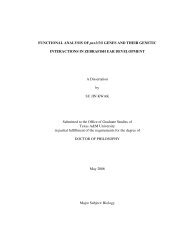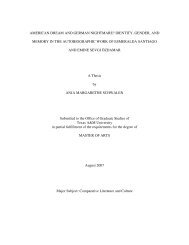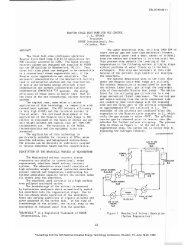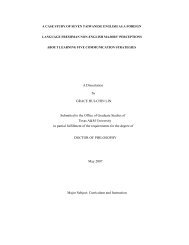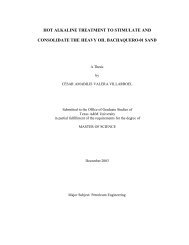THE EFFECT OF ETHICAL SIGNALS ON RECRUITMENT ...
THE EFFECT OF ETHICAL SIGNALS ON RECRUITMENT ...
THE EFFECT OF ETHICAL SIGNALS ON RECRUITMENT ...
You also want an ePaper? Increase the reach of your titles
YUMPU automatically turns print PDFs into web optimized ePapers that Google loves.
himself and to other men (Kant, 1964). He defined duty as “the notion of a good will<br />
with certain subjective restrictions and hindrances” (Kant, 1938, p. 12). For example,<br />
man has a duty not to take his own life or borrow money unless he intends to pay it back,<br />
along with a duty to love and respect fellow men (Kant, 1964; 1996). Other duties of<br />
man included a duty toward animals, inanimate objects, and particular classes of human<br />
beings (Kant, 1930). Kant’s writings implied a sense of choice and freedom in moral<br />
action, unlike legal action. He suggested that morality was based upon the level of<br />
goodness of that free will (Kant, 1930). As Kantian philosophy has been applied to<br />
business ethics, the organization is a moral community (Bowie, 1999). In addition,<br />
Kant’s “respect for persons” principle suggests that “any business practice that puts<br />
money on a par with people is immoral” (Bowie, 1999, p. 3).<br />
Teleology<br />
While deontology adds tremendous value in our understanding of business ethics,<br />
it is not without its criticisms, one of which is the large number of exceptions to the<br />
“rules” (Hunt & Vitell, 1986). Teleology is rooted in the Greek word, telos, which<br />
means end or purpose (Taylor, 1975). Unlike deontology, which is concerned with the<br />
act itself, teleology measures moral worth by the positive or negative consequences of<br />
the act (Ferrell & Gresham, 1985; Hunt & Vitell, 1986; Vitell et al., 2001). Behavior is<br />
considered moral if it results in more good than evil (when compared to the alternatives)<br />
(Hunt & Vitell, 1986; Vitell et al., 2001). The four constructs that are evaluated by<br />
teleologists when making an ethical decision are: 1). “the perceived consequences of<br />
each alternative for various stakeholder groups,” 2). “the probability that each<br />
6


